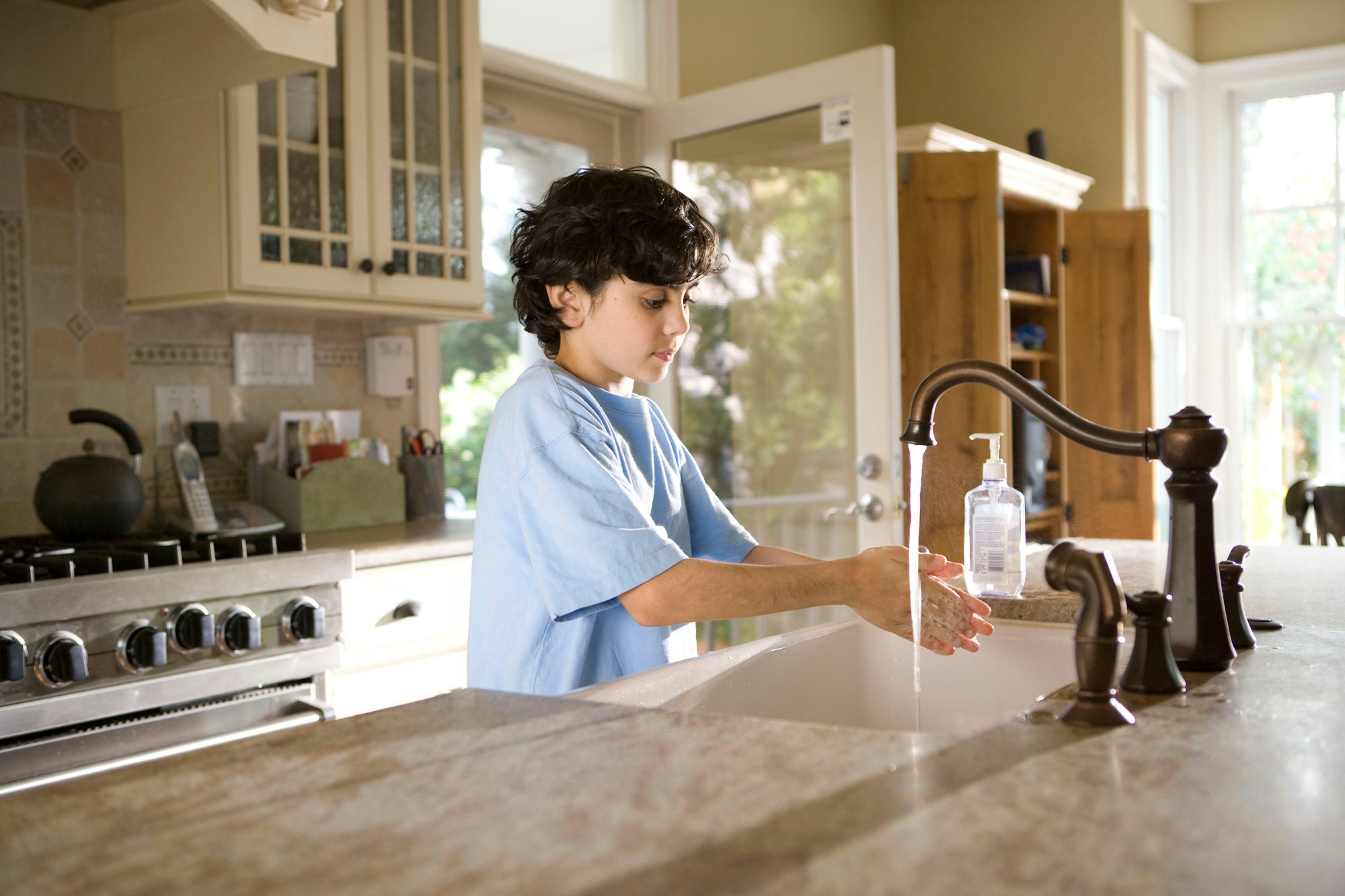Doing the chores at home becomes challenging if you are doing all the work. It would be easier to balance career, parenting, and maintaining the house if you can combine one responsibility with another, right? Find out how you can better parent your kids by reinforcing them to help you maintain your home!

Parents are indeed the happiest when their kids learn to help out in maintaining the house. However, you may have questioned the possibility that your kid would ever willingly do household chores. It may be hard, but training your kids early to help at home will allow you to raise responsible and successful adults.
Self-Reliant, Responsible, and Proficient Kids

A study published by the University of Minnesota found that kids who are given household chores at an early age grow up to be self-reliant, responsible, and proficient. Training them early to contribute to the family can also boost their self-confidence and initiative.
Cleaning Should Not Be a Punishment
Psychology argues that children between the ages of 18 months and 2-3 years old are focused on building self-control. They are sensitive to punishments that make them shameful or doubtful of their actions. To successfully train your kids to help out with chores, reassure them or praise them each time they clean up after themselves.

Your reassurance can boost your kid’s confidence. This will make them more willing to take initiative in helping you out in the house.
Start With Simple Tasks
The tasks that you assign to your kids must be appropriate to their age. This also means that if you start reinforcing them early, you must start with simple tasks.

For toddlers, you can start teaching them how to put their toys back to the right place. You can also invite them to help you sort clothes that are fresh from the laundry. This can be an opportunity to develop their cognitive skills through sorting and organizing.

For older kids, you may assign tasks like changing the pillow cases, setting and cleaning the dining table, washing the dishes, dusting off cabinets, and even sorting out the laundry.
It is important that you first guide them to the process. You can first show them how things should be done and then let them do it alone. Then you can reduce your degree of supervision once they get the hang of it.

Some experts argue that parents should not make “allowance” a motivator for kids who do not yet know the value of money.
Rewarding young kids with money after doing chores can make them believe that all things can be exchanged for money. But in life, there are things that has to be done anyway regardless of compensation.
Create a Chores Chart
A chores chart includes the breakdown of household chores assigned to each member of the family. It shows your kids that everyone shares the responsibility of maintaining the house.

A chores chart can serve as your kids’ accountability partner. It will help them monitor the tasks they have accomplished and the tasks they have not.
In keeping your kids motivated to follow the chores chart, you must ensure that everyone does his or her assigned chores. You may also involve your kids in making the chores chart to give them a chance to choose what they want to do.
In this way, you can train them to be more assertive when working with a group.
Keep in mind that you must avoid micromanaging your kids through the chores chart. It is best to give them friendly reminders.

A parenting expert also suggests to implement the “when/then” technique. “When the living room has been swept, then you may have your lunch.”
Cleaning and Family Time
If you are a busy parent, you can tell you kids that they can spend more time with you if they help out with household chores. You can invite them to cook with you or do laundry with you. Just make sure that they are capable enough to assist you. For simpler tasks, you can have your kids water the plants with you.

If you have a common time over the weekend, you can also clean the house as a family. Making it seem like a game can also motivate your kids more. For example, you can “race” with each other in folding the most clothes or dusting off the most number of furniture. But do not overlook the quality of work and the safety of everyone when doing these “games”.
Emphasize The Importance of Chores
Educating your kids about the importance of chores in the house can also reinforce them better to accomplish their tasks.
Hygiene in the dining table is important to avoid food contamination. Thus, everyone in the family should help in maintaining a clean dining table.

Sorting out laundry prevents colored clothes from staining plain ones. You may tell your kids that if they want to keep their favorite clothes, they should help out in sorting the laundry.
Cleaning the house prevents germs and bacteria from building up and harming the family’s health. It also makes the house a more pleasant place for everyone.

Be Patient
As much as you want your kids to be consistent in helping out, be open to the possibility that they may not do what they are told. Teaching them the habit of cleaning up after themselves is a long process. As a parent, you must be patient with their progress.

Do not set high expectations. Rather, set realistic ones. Consider the attention span of your kids and also the pace with which they develop a habit.
Avoid inducing guilt to them, especially since they are in a crucial stage of development. Just provide more opportunities for them to make up for what they missed. And in a kind way, let them know what you feel when they do not accomplish their assigned tasks.

Focus on the value that you are teaching them and pay attention to the changes in their behavior. You must also be open to modify your techniques to convince them to do their chores. By showing them patience firsthand, you are raising them to become patient individuals too.
Chores and Responsible Parenting
Reinforcing your kids to help at home and do chores achieve more than just dividing household tasks. Training your kids to be dependable and independent individuals at home will make them successful and responsible adults. Thus, you would also have done a good job in parenting them responsibly.

Remember that reassurance, support, and patience are essential elements of reinforcing your kids to help at home. The process may get challenging depending on how your kids will respond. But your efforts will not be in vain!
